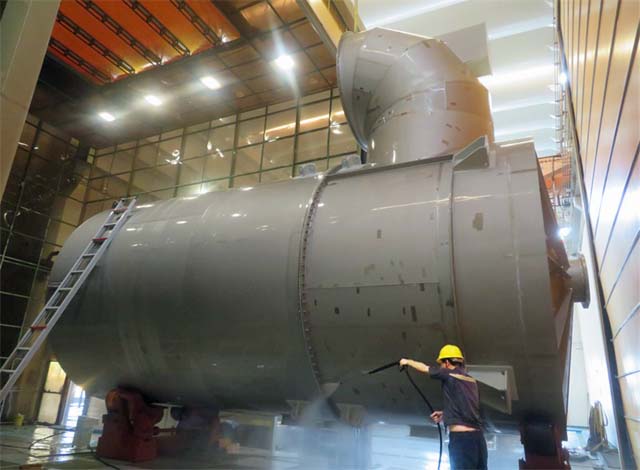Wärtsilä has secured a new agreement for its exhaust gas cleaning systems to be installed on two newbuild 218m ro-pax vessels at Guangzhou Shipyard International (GSI) in China.
The contract will see Wärtsilä fit and commission two 25MW V-SOx hybrid scrubber systems, which can run in both open and closed loop configurations, on each vessel. The order comes as a result of Wärtsilä’s long-term commitment to the Asia-Pacific region, where the organisation has regional resources to enable it to provide sales, support and lifecycle services.
By choosing to install Wärtsilä’s exhaust gas abatement technology, the vessels will immediately comply with the 0.5% Global Sulphur Cap and will also be futureproofed against impending regulatory change. This is because Wärtsilä’s modular, lifecycle technologies can be upgraded to tackle other pollutants, including Nitrogen Oxide (NOx), Particulate Matter (PM) and Carbon Dioxide (CO2).
Wang Bin, Area Sales Manager China, Wärtsilä Exhaust Treatment, said: “We are very excited to start 2022 with this order of SOx scrubbers onboard two ro-pax vessels being built by our partners at GSI. This agreement not only proves our long-term partnership with GSI, but also demonstrates the commercial and technical viability of scrubbers in shipping’s complex decarbonisation landscape. Our technology completely fulfils technical requirements for newbuilds, ensures compliance with current regulation, and is also the first building block for future sustainability innovation. We look forward to working with GSI on this collaboration and others in our future together.”
Jiang Lei, Purchasing Manager, GSI, said: “It is a real pleasure for us to be working with Wärtsilä to fulfil this latest order on two ro-pax vessels. We recognise the long-term potential of scrubbers for solving many crucial challenges in the shipping industry, and we are proud to carry out installations at our development-oriented shipyard.”
Wärtsilä and GSI will complete the delivery and installation of the four scrubber systems by the end of 2023 for both vessels.



